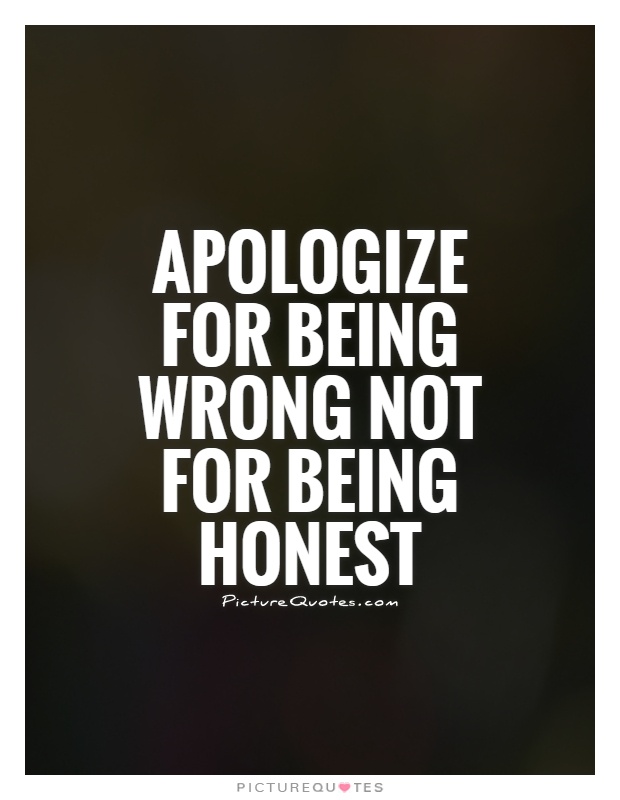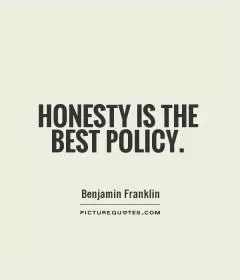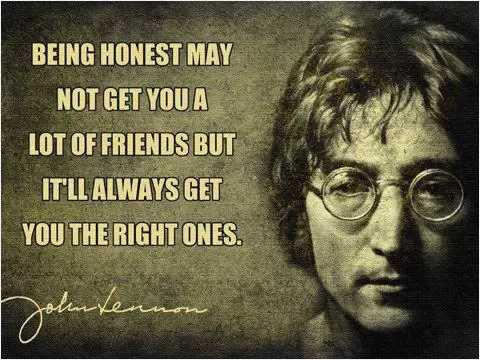Apologize for being wrong not for being honest

Apologize for being wrong not for being honest
Apologizing for being wrong rather than for being honest is a concept that holds a lot of weight in interpersonal relationships. It speaks to the importance of honesty and integrity in communication, even when it means admitting fault or making mistakes. In a world where people often prioritize saving face or avoiding conflict, apologizing for being wrong can be a powerful way to build trust and strengthen relationships.When we apologize for being wrong, we are acknowledging our own fallibility and showing humility. It takes courage to admit when we have made a mistake or misjudgment, and apologizing for it demonstrates a willingness to take responsibility for our actions. This can go a long way in repairing any damage that may have been done to the relationship, as it shows that we value honesty and integrity above all else.
On the other hand, apologizing for being honest can be seen as a betrayal of our own values and beliefs. When we apologize for speaking the truth, we are essentially saying that we regret being open and transparent in our communication. This can erode trust and credibility in the relationship, as it sends the message that we are not willing to stand by our own convictions.
In many cases, being honest and admitting when we are wrong go hand in hand. When we are honest about our thoughts, feelings, and actions, we are more likely to recognize and acknowledge when we have made a mistake. By apologizing for being wrong, we are not only showing respect for the other person, but also for ourselves and our own values.












 Friendship Quotes
Friendship Quotes Love Quotes
Love Quotes Life Quotes
Life Quotes Funny Quotes
Funny Quotes Motivational Quotes
Motivational Quotes Inspirational Quotes
Inspirational Quotes